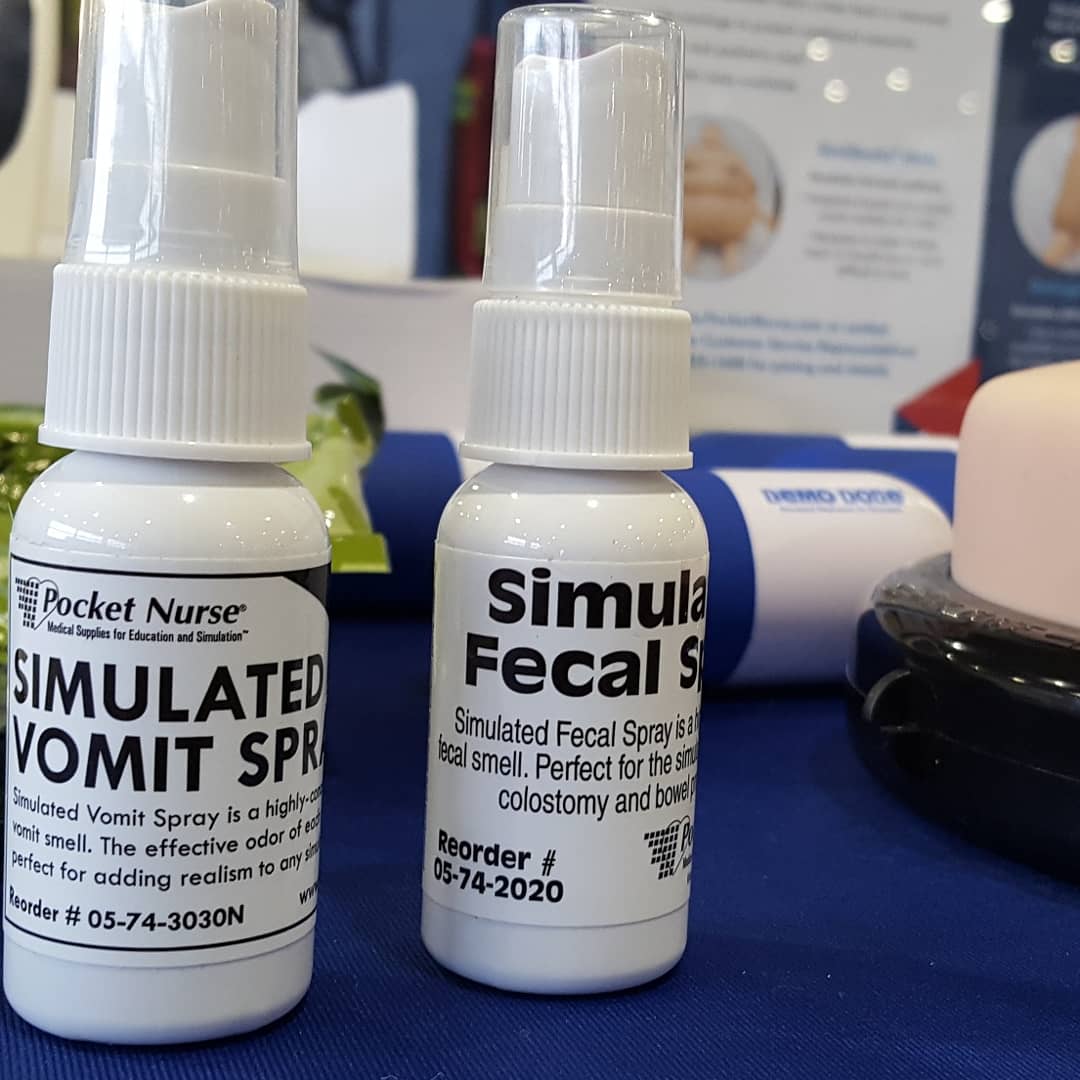
More than any other sense, a person’s sense of smell can instantly invoke a long-forgotten memory. The scent of freshly baked bread can take evoke memories of a grandmother’s kitchen; newly mown grass can make one recall a summer spent as a landscaper.
1. The sense of smell is uniquely designed for emotional learning and memory. The NIH reports a close connection to the olfactory pathways responsible for our sense of smell and the sections of the brain responsible for emotion and memory. Research reveals that the olfactory system, while simple compared to other sensory systems, has a “direct access to the emotional centers of the brain.”
2. Using odor helps to increase the fidelity of simulation. Educators can take advantage of the connection between smell and memory by using it in learning. A good guideline for creating immersive simulation scenarios is to stimulate at least three senses. It’s nearly impossible for a student to pretend that certain stimuli are present in the simulation when they are not.
Read our post about Five Tips for Creating an Immersive Simulation Scenario
3. Truly immersive simulation improves students’ recall. The more students learn to associate certain smells, sounds, and sights to a specific situation in a simulation, the more easily they will be able to recall their training when they encounter that situation in the field.
4. Exposing students to bodily odors – which can be overwhelming – prevents negative reactions during clinical rounds. Students will become more accustomed to smells of vomit, fecal matter, burnt flesh, and urine prior to their first real-life encounter.
5. Simulated smells apply to many types of simulation scenarios, from traumas to patient care in hospitals or long-term care homes. According to a recent Product Ambassadors survey of Pocket Nurse® customers, simulated smells are used in RN, LPN, and EMT and paramedic scenarios. The majority of respondents rate the importance of using simulated scents as important (37%) or very important (33%).
The Power of Smell
- An average person can detect at least one trillion different smells.
- Smell triggers memory and emotions. Studies have shown that people remember the details of a movie 10 to 50 percent more if they smell an associated scent like popcorn.
- Taste and smell are the only two sense connected to the limbic system of the brain, which is responsible for emotional memory.
Pocket Nurse offers simulated scents for vomit, feces, and urine in spray form.
Resource: Mouly, A., Sullivan, R. “Memory and Plasticity in the Olfactory System: From Infancy to Adulthood.” The Neurobiology of Olfaction. 2010, Taylor and Francis Group, LLC. https://www.ncbi.nlm.nih.gov/books/NBK55967/







